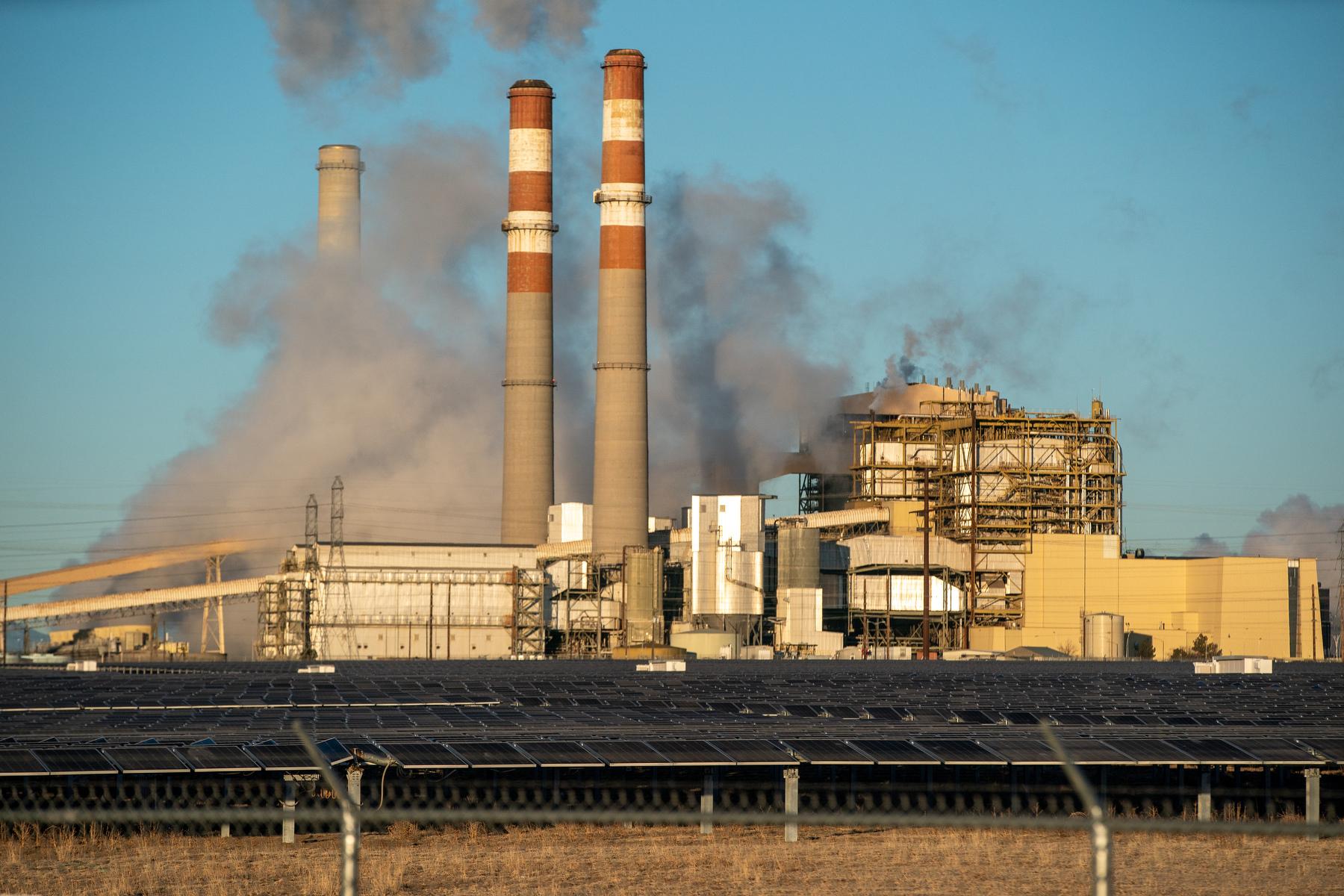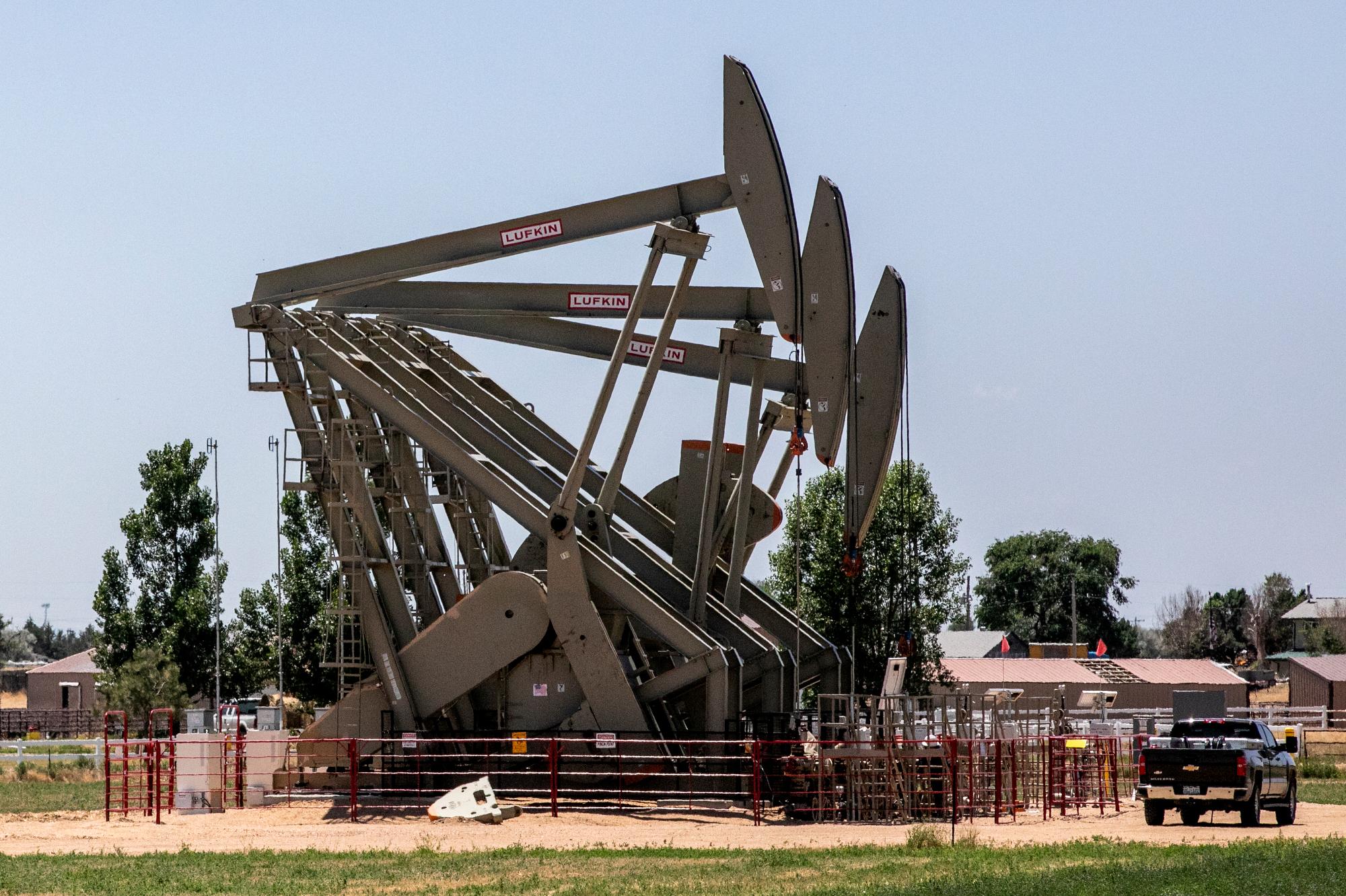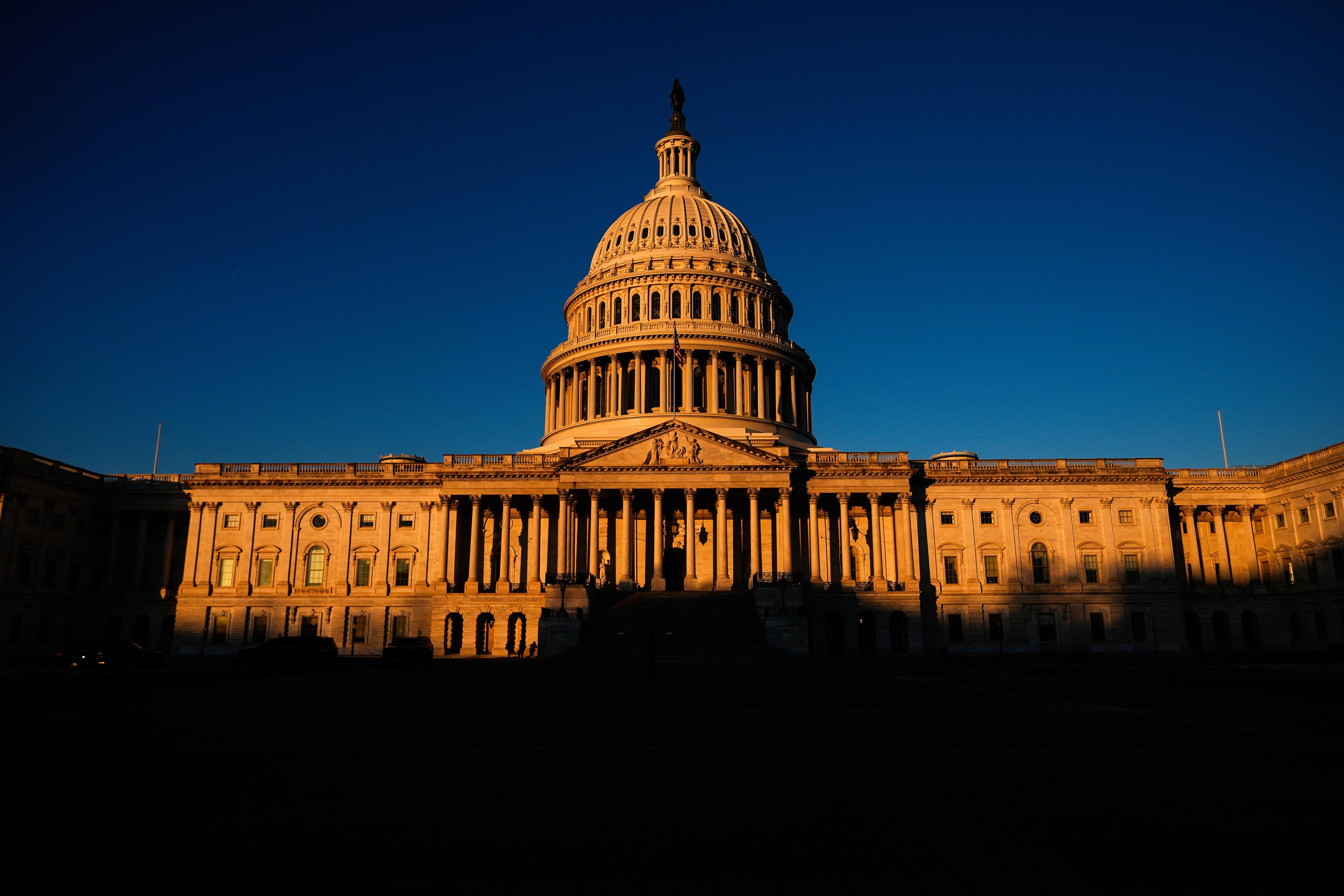
Congressman Jeff Hurd sent a letter on Friday asking the Trump administration to indefinitely delay the closure of Comanche 2, a coal-fired power plant currently scheduled to shut down at the end of 2025.
Pueblo is home to two operational coal-fired power plants run by Xcel Energy: Comanche 2, slated to close in December, and Comanche 3, a consistently unreliable plant scheduled to shutter by 2031. Comanche 1, an older unit built in 1973, ended operations in 2022.
Hurd’s letter asks Secretary of Energy Chris Wright — a former fracking executive from Colorado — to invoke federal emergency powers to keep the lights on at the entire Comanche Generating Station, until certain the utility installs enough generation to replace it. In an interview with CPR News, Hurd, who represents Pueblo, said that the one-two punch of closing Comanche 2 and 3 would create a crisis when demand for power is spiking, driven by data centers used for AI.
“Fundamentally, I think this is an issue of grid stability, which goes beyond the state borders of Colorado,” Hurd said.
A decision to keep the power plant open would mark a new flashpoint between Colorado and the federal government. Colorado utilities have spent years working with state regulators on plans to shutter all six coal-fired power plants across the state by 2031.
It’s clear, however, that the Trump administration is ready to override state authority. In May, U.S. Energy Secretary Chris Wright delayed the closing date for the J.H. Campbell power plant in Michigan, warning the loss would lead to blackouts. Critics claim no emergency exists and ratepayers will end up paying millions to keep the facility on life support.
Hurd’s request faces immediate pushback
A similar fight could soon play out in Colorado.
Neither Xcel Energy nor state regulators have publicly sounded the alarm about an imminent grid reliability crisis that’d require Comanche 2 to stay open. Environmental groups claim the federal government is ready to invent one in order to buoy the coal industry.
‘This is a manufactured crisis,” said Erin Overturf, the clean energy director for Western Resource Advocates. “If we are in a so-called energy emergency, then why is the Trump administration bending over backwards to slow procurement of clean energy resources like wind, solar and battery resources?”
Overturf also worries that extending Comanche’s lifespan would increase energy bills. In Michigan, the utility operating the J.H. Campbell power plant recently reported it’s spent around $615,000 per day to keep the facility running, adding up to $80 million in net costs since May. Customers will eventually pay some of those costs.
Utilities have also guaranteed closing coal fire power plants would save money in Colorado. Xcel Energy announced plans to close Comanche Unit 1 and Comanche Unit 2 in 2017. At the time, Colorado’s largest utility claimed retiring both coal-fired power plants would help protect the environment and save ratepayers $213 million money over the long run.
State utility regulators at the Public Utilities Commission (PUC) unanimously approved the plan in 2018. Roughly four years later, the same panel of regulators approved a settlement to shutter Comanche 3 by 2031.
The PUC and Xcel Energy have also spent years deliberating how to replace Comanche 3. The current plan calls for a massive build out of new renewables and payments to Pueblo County to compensate for tax revenue lost by shuttering the complex.
Some local officials have called on the federal government to interfere, arguing that only new natural gas power plants or even nuclear facilities could offer sufficient jobs and property taxes.
In a written statement, Will Toor, the director of the Colorado Energy Office, said Gov. Polis’ administration is ready to talk to local officials about the best ways to protect air quality and low energy prices
“At the same time, it’s important to point out that wind and solar are cheaper for consumers than expensive and often unreliable coal-fired generation, and utility resource planning is subject to state – not federal – jurisdiction,” Toor said.
Hurd, however, said the state has failed to account for potential grid reliability issues. Comanche 3 — Colorado’s newest coal plant — has been full or partially offline for more than 138 days since August 2023, according to documents obtained by the outlet Big Pivots. With so many outages, Hurd said Colorado can’t afford to shut down Comanche 2, which he claimed provides a consistent source of baseload power.
In a statement, Xcel Energy said it would comply with any orders issued by the federal government to keep its coal plants running.
The U.S. Department of Energy did not reply to a request for comment.
A controversial legal strategy to keep coal plants running
Hurd’s letter asks Wright to invoke Section 202(c) of the Federal Power Act.
The law allows the federal government to order power plants to stay open during emergencies — like during times of war, in the aftermath of disasters or when there’s a shortage of electricity.
The Trump administration has already invoked the law to keep the lights on at the Michigan plant, and another one in Pennsylvania.
The Sierra Club has challenged the Michigan orders in federal court. Matt Gerhart, a staff attorney for the environmental group, said it’s currently monitoring the possibility of a similar order to continue operations at the Comanche Generating Station.
“DOE actions to prevent coal plants from retiring will increase costs and make electricity less affordable,” Gerhart said. “Sierra Club would fight back against any 202(c) issued in Colorado.”








